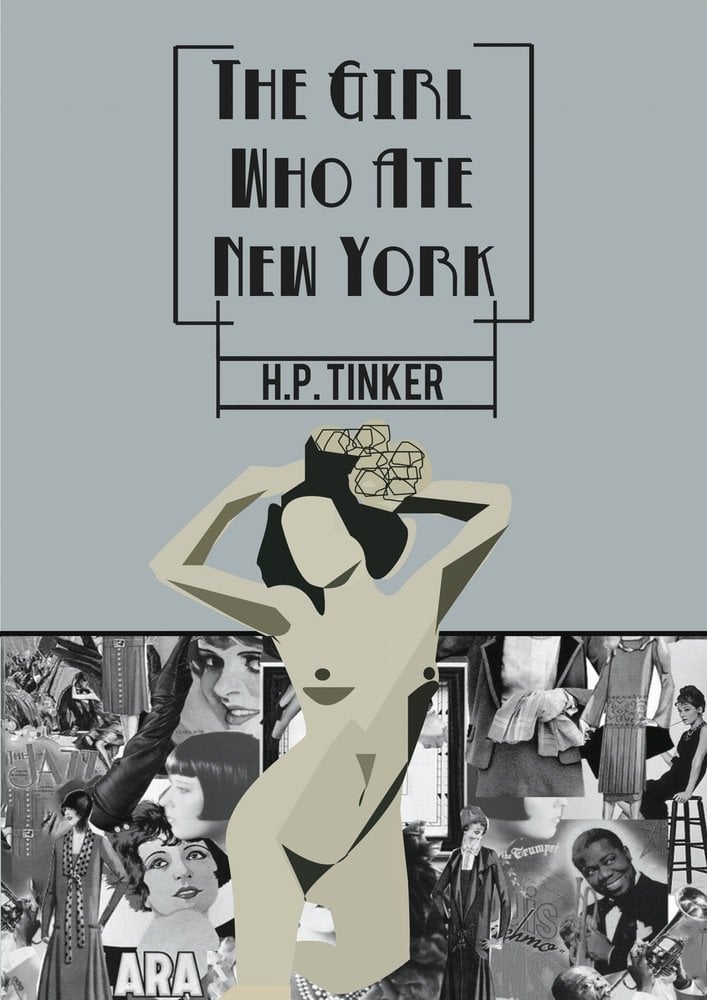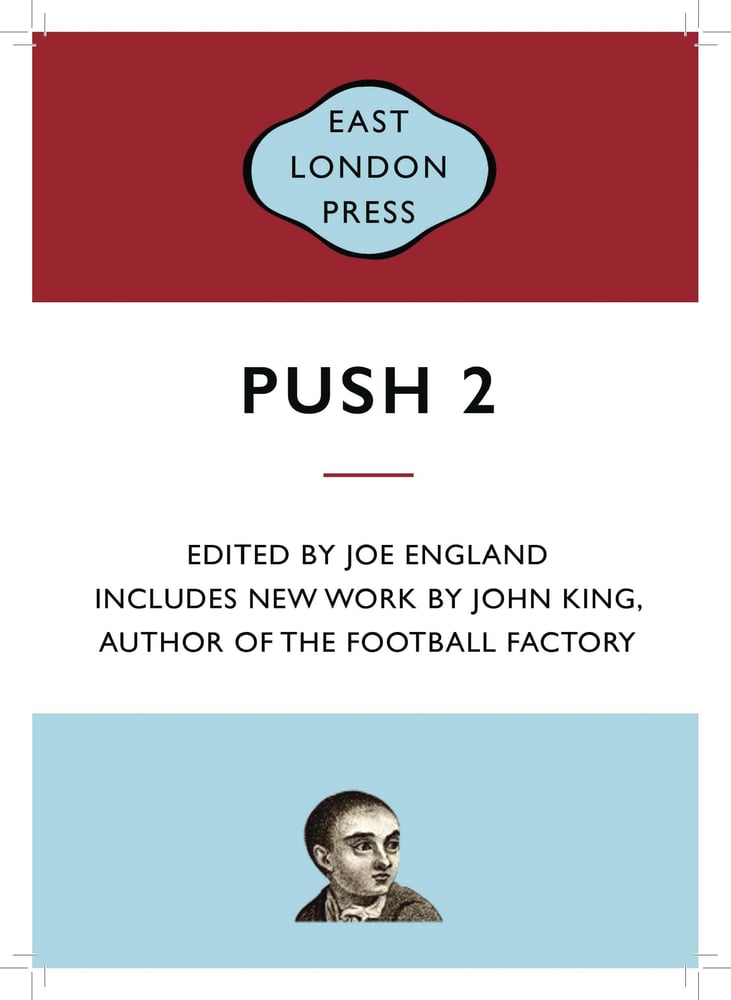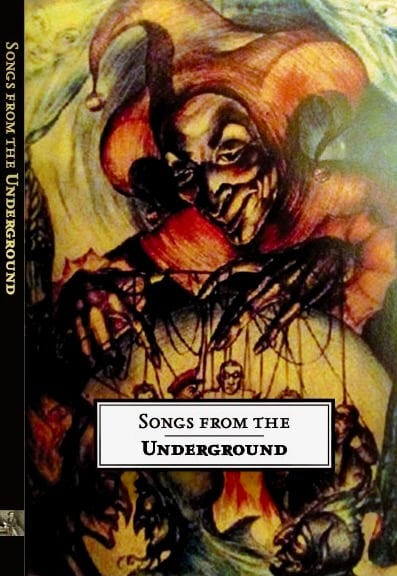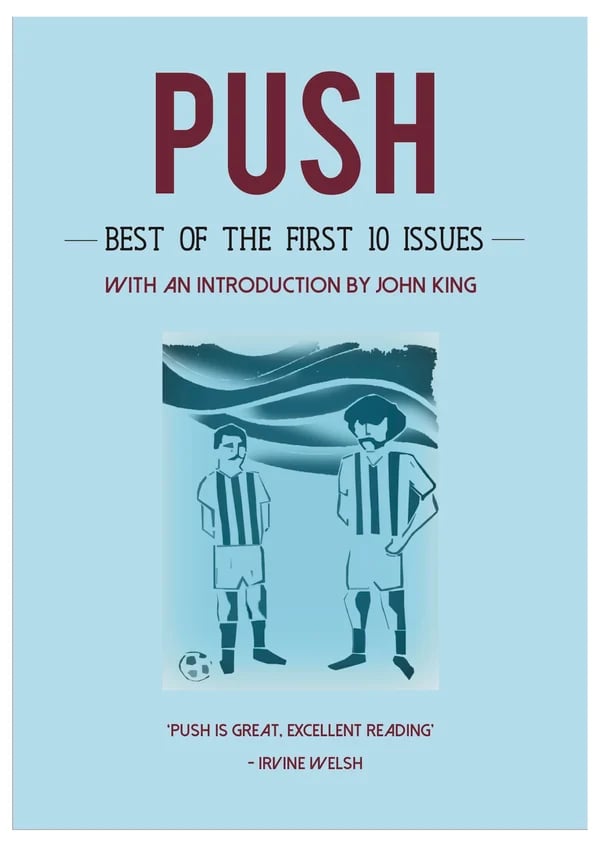The Girl Who Ate New York
£9.99
East London Press is proud to announce their second publication - the long-awaited and hotly anticipated publication of - The Girl Who Ate New York - a brand new collection of 18 stories from influential and highly original short fiction writer HP Tinker. If you’ve never heard of HP Tinker then don’t go admitting that in public as it will mean instant social exclusion. Here’s why- Discovered and supported by Martin Bax at Ambit, novelist/editor Nicholas Royle and 3:AM Magazine's Andrew Gallix, his avant-garde comic fiction has been compared to Donald Barthelme and Paul Auster, though because he prefers to eschew readings and public appearances he has also been called "the Thomas Pynchon of Chorlton-cum-Hardy". Since having his first short story published in Ambit in 1996, he has gone on to become one of their most prolific contributors, and in 2010 he appeared in the 200th edition alongside Sir Peter Blake and Jonathan Lethem. It is not widely known that his uncle was the late theatre critic Jack Tinker, who famously blasted Sarah Kane’s Blasted. (Her later play Cleansed features a villainous character called Tinker.) More recently, his classic story “Alice In Time & Space and Various Major Cities” was included in a Best British Short Stories anthology and he has just finished his first novel, a very short trilogy called Conspiracy of Eunuchs. QUOTES "Unsung comic genius" (Time Out) “Hilarious deadpan surrealism” (The Times) “A grand symphony of intertextuality, tomfoolery and theoretical intent” (Lee Rourke, A Brief History of Fables) “Fizzes with the kind of zany, surreal conjunctions that recall Barthelme and Pynchon in their prime.” (The Guardian) “An assiduous champion of the short story, Nicholas Royle introduces works by three young English practitioners of contemporary noir. The best is HP Tinker, whose infusions of surrealism and pop-culture references have apparently already earned him comparisons to Thomas Pynchon, though his three stories here reminded me more of Paul Auster's New York Stories. His stock detectives flounder in an incomprehensible universe overloaded with information but short on meaning, and are as baffled as the reader by the improbable suicides and motiveless crimes which they come across. Unusual, arresting, smart and very funny, his stories easily repay Royle’s faith in the form, though personally I look forward to him writing a novel.” (Independent on Sunday) “If HP Tinker didn't exist, you'd have to make him up... he is as influenced as much by Woody Allen, Dr Seuss and Morrissey as he is by William Burroughs and Joe Orton. As one of the brave ones — and one of Britain's most shameless writers — HP Tinker has been peddling his own brand of surrealism for years now, in stories littered with pop cultural references where you are likely to meet Dorothy Parker, Tom Paulin, Paul Gauguin as you are Dean Martin and Morrissey.” (Dogmatika) Tinker’s work contains amongst other things - Bawdy moustaches. The wildest of similes. Donald Barthelme rutting with a buxom Oulipian in the pale fire of a Nabokovian footnote. Morrisseyspotting aplenty. Devastating satire of Swiftian proportions. Lashings of hardcore gastroporn. Bewildering Lynchian filmic devices. Uncanny Orton pastiches. A recurrent association between artistic creation and immoderate masturbation. Relentless self-reflexivity; postmodernism gone mad. A very British brand of Surrealism that owes as much to the Goon Show, Monty Python or Glen Baxter as to the Continental heavyweights. At times, the feeling of Woody Allen stranded on a Carry On film set. Whereas his absurdist forebears could only gratify us with a sardonic grimace, Tinker does laugh-out-loud. Whereas much “experimental” fiction is deserving of study yet tiresome to sit down and read, he reconciles — seemingly effortlessly — the avant-garde with the plaisir du texte— as far removed from the cosy world of Amis or Barnes as it is possible to get — managing the feat of being at once experimental and accessible. (Andrew Gallix)



